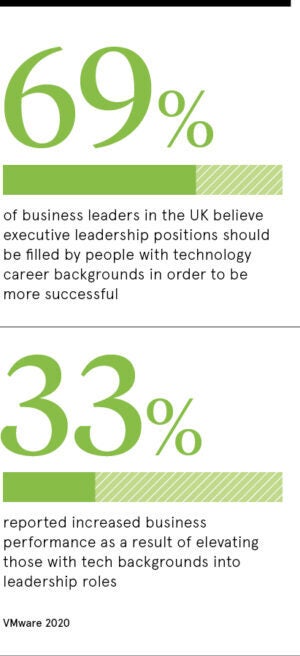In this world of fast-paced digital evolution, future chief executives must end their reliance on simply delegating responsibility for technological decisions to a chief technology or information officer.
The most pressing and critical business choices for any leader revolve around adopting the right and most future-proofed technology. From the growth in data, artificial intelligence (AI) and machine-learning, alongside digital transformation, remote working and changing consumer habits, experts agree tech will be the answer to most of the biggest business challenges ahead.
However, if a CEO doesn’t have the knowledge, time or will to understand the complex decisions they face, how can they act in a company’s best interests to drive the lowest-cost implementation while gaining the greatest long-term benefit?
CEOs must think like CTOs
Ex-Googler Jessica Nordlander, recently named Sweden’s Most Innovative Leader by Scandinavian management and leadership magazine Chef, believes it comes down to accepting change as a constant, something chief technology officers (CTOs) and chief information officers (CIOs) are always working with and against.
Nordlander, chief operating officer of Canadian company Thoughtexchange, a crowd conversation tool for leaders, says: “How future leaders utilise technology will be integral to whether they succeed or they don’t.
“There is still a feeling in many organisations that at some point digital transformation can and will be complete. Unfortunately, nothing could be further from the truth. Future CEOs will need to be very comfortable with constant change.
“Current seismic shifts are blowing up longstanding practices and established prejudices. The move towards non-conventional workforces presents a unique opportunity where strategic use of technology can be exponentially valuable for leaders.”
A seemingly obvious answer to transform the way technology is positioned within companies is to recruit future CEOs from the CTO or CIO job roles. New research from software company VMware suggests this could become a growing trend.
It found 69 per cent of UK business leaders believe executive leadership positions should be filled by people with technology career backgrounds in order to be successful. Some 33 per cent of those it questioned also reported their firm had experienced improved business performance as a result of elevating those with such backgrounds into leadership roles.
VMware’s Ed Hoppitt says: “Business leaders have never been at the helm of so much change. Those with an inherent knowledge of technology to help adapt to any market conditions and shape future performance and resiliency have a real advantage. Leadership with technology in its DNA is a winning combination.”
Why a technology background is crucial
One reason many see success in this way forward is because the CTO’s role is very strategic, looking at how technology accelerates revenues, lowers costs and improves customer experience, all key things a CEO must be concerned about.
CTOs also understand the importance of technology in business process transformation, how to use it to achieve a fast return on investment (ROI), and they are used to taking projects from a low level of maturity to scale.
It could also be argued that CEOs with a technology background may also be less inclined to make rushed or poor decisions during times of crisis, for example the coronavirus pandemic, when long-planned technology investment could be one of the first casualties of cutbacks in order to shore up the status quo instead.
Conversely, they might also have the right insight to stop money being wasted on short-term tech-led non-strategic decisions, just because it is the hot idea of the moment among competitors.
Chris Locke, CEO of corporate innovation at innovation consultancy Rainmaking, explains it comes down to a CTO’s ability for foresight. “CEOs need to measure the impact technology like AI and augmented reality will have beyond the short term,” he says. “A CTO would not invest budget in developing or implementing new products or services where there wasn’t evidence to support a prosperous ROI.”
CEOs must be able to ask the right questions
 And with predictions that the next 30 years of business change will be even more rapid and far reaching than the past three decades, CEOs now have to face their incumbency being overtaken by technology-first challengers. That’s why Dr James Berry, MBA director at University College London, believes technological knowledge is vital for the future CEO.
And with predictions that the next 30 years of business change will be even more rapid and far reaching than the past three decades, CEOs now have to face their incumbency being overtaken by technology-first challengers. That’s why Dr James Berry, MBA director at University College London, believes technological knowledge is vital for the future CEO.
“While most may not need to learn how to code per se, they must know enough about data and technologies to ask the right questions, understand the data being returned to them and make the right tech infrastructure investments in this fast-evolving world,” he says.
“Without a firm grip, the CEO will find it increasingly challenging to get the most out of their business, particularly if competitors are adept in this area.”
CEOs must think like CTOs
Why a technology background is crucial
CEOs must be able to ask the right questions






